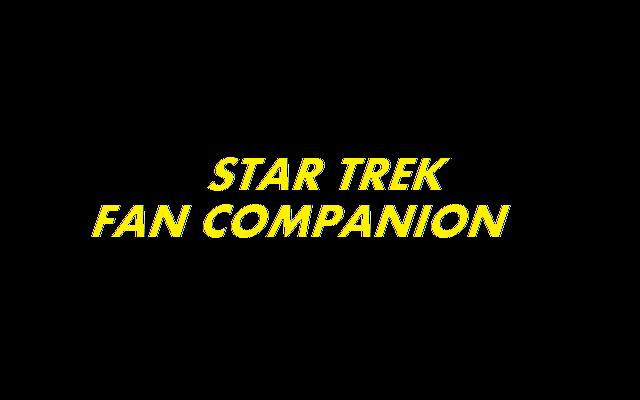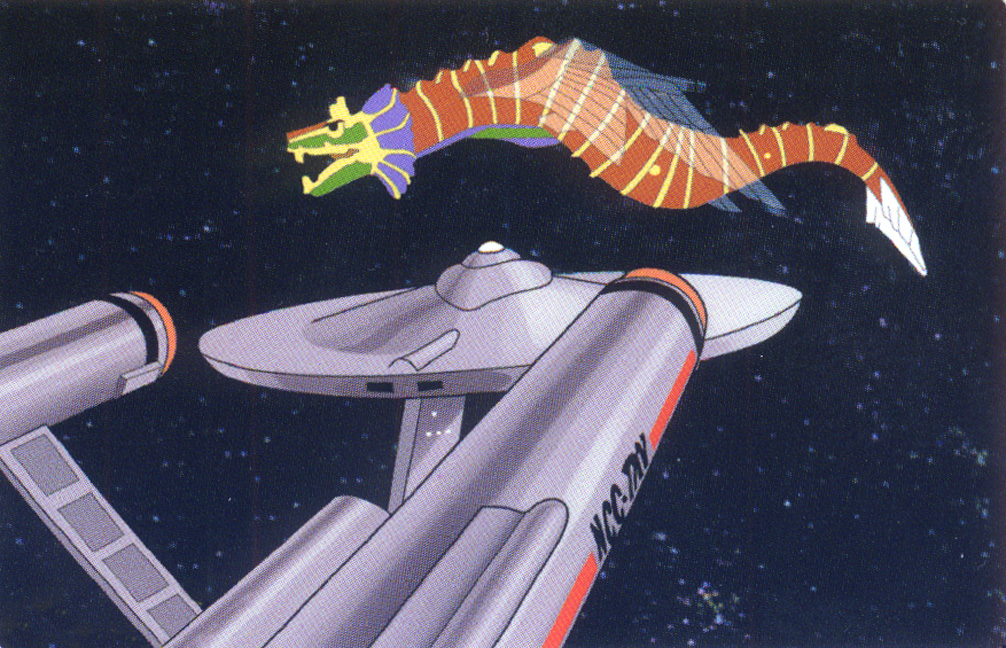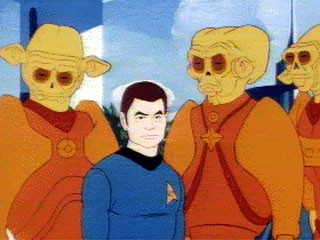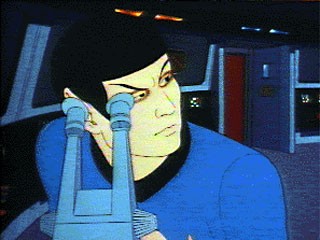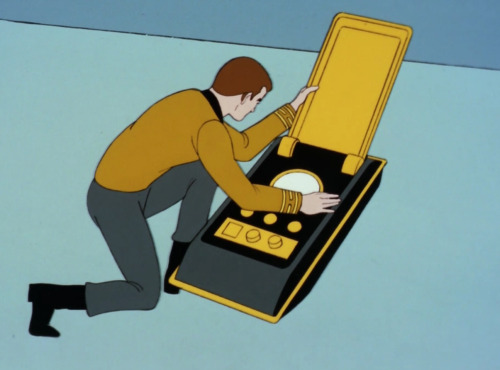Memory Alpha summary
| via Trekcore |
A far, far better version of the de-aging idea (and as such, the much more prolific rapid-aging seen in many, many episodes) later featured in Next Generation's terrible "Too Short a Season," "Counter-Clock" most pointedly features Robert April.
(Also, Next Generation featured the crew de-aged into children in "Rascals." That's the other half of what happens this episode. It's cutesy without being annoying in a way similar developments in the series failed to be, but would not in itself be a reason to recommend it. Unless you're amused by the familiar acting voicing themselves younger. George Takei probably is the best in that sense.)
(The idea of a reluctant retirement, as April is facing, is again addressed in a Next Generation episode, "Half a Life.")
(Finally, a different series, Voyager, features an alien civilization aging differently in two episodes: "Innocence," with the idea of aging backward like "Counter-Clock" and The Curious Case of Benjamin Button, and "Blink of an Eye," with a planet whose rotations are far more rapid than the norm, as Janeway and company observe their epochal progress while stuck in orbit.)
Who is Robert April, you may be asking? When Gene Roddenberry originally conceived of Star Trek, he was the original captain. Before Kirk and before Pike, there was Robert April.
 |
| via Wikipedia |
And without "Counter-Clock," the character does not technically exist. This is the most galling part of the common notion that the series does not exist canonically. Take away the sentimentalism, and "Counter-Clock still functions in much the same capacity as "The Menagerie," the two-part original series episode that incorporated Pike's appearance in the first pilot, "The Cage," to make it canonical (and cost-effective). Yes, the circumstances are different. But here's Robert April, under unique circumstances actually getting to save the day.
With the appearance of April, this final episode of the series is also a definitive bookend to the franchise as it was at that point, however unintentionally, much as Enterprise would later attempt to accomplish, however dubiously, with "These Are the Voyages..." And that's another reason why it, as well as the series as a whole, ought to be at last embraced as a part of the Star Trek legacy.
four quarter analysis
franchise * series * essential * character
notable guest-stars:
James Doohan
Nichelle Nichols
